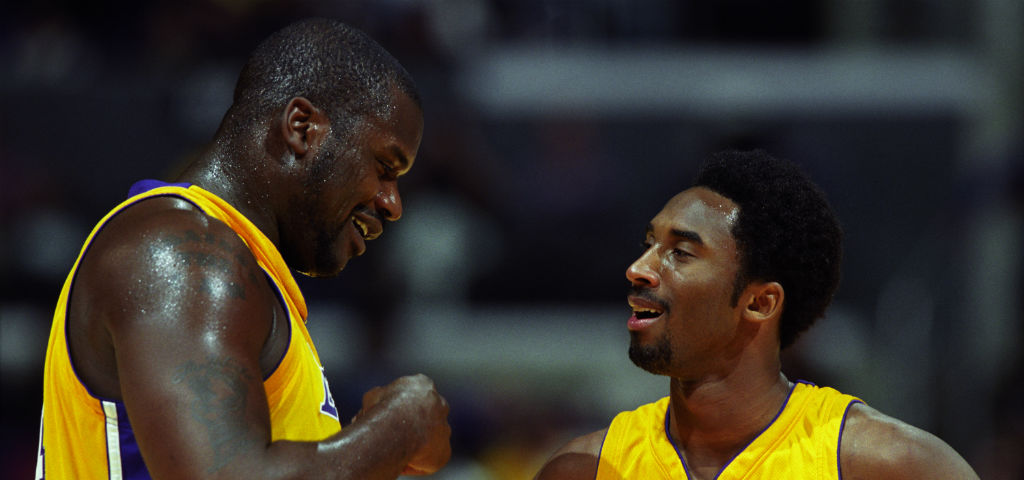
The Kobe-Shaq Lakers are as fascinating a team as there has been in the NBA, a force that, at its peak, was one of the most dominant teams ever, but was undone by internal strains and tensions that eventually became too great to overcome.
That team is the subject of Jeff Pearlman’s new book, Three-Ring Circus: Kobe, Shaq, Phil, and the Crazy Years of the Lakers Dynasty, that released on Tuesday, and ESPN ran a number of excerpts from the piece for its launch. They detail a young Kobe Bryant’s rise from an awkward Italian kid to a high school sensation in the U.S., but most notably the strained relationship between the two Lakers superstars in Bryant and Shaquille O’Neal.
One such story comes from Olden Polynice, who recalls a pickup run in Los Angeles during the 1998-99 lockout in which Bryant’s constant antagonizing of Shaq and claims that the Lakers were “my team” and that Shaq was “not a leader” eventually got him smacked (and, if not for Polynice running in to grab the big man, much worse) by the Big Diesel.
Several of the participants stepped in to separate the two, and the game eventually continued. But it no longer felt even slightly relaxed or friendly. “We probably went up and down the court two more times,” Polynice said. “Kobe goes to the basket, scores, screams at Shaq, ‘Yeah, motherf—er! That s— ain’t gonna stop me!’”
O’Neal grabbed the ball in order to freeze action.
“Say another motherf—ing word,” he said, staring directly at Bryant.
“Aw, f— you,” Bryant said. “You don’t kn–”
Smack!
O’Neal slapped Bryant across the face. Hard.
“His hands are huge,” said Blount, who was playing in the game. “The noise was loud.”
Here is Polynice’s recollection: “Then Shaq swung again at Kobe, but he missed. S—! I run over and grab Shaq, because I’m big enough to do so. And Shaq keeps swinging, but everything’s missing because I have his arms. I’m grabbing on to Shaq, holding on for dear life, yelling, ‘Somebody grab Kobe! Seriously — somebody grab him!’ Because I’m holding Shaq and Kobe’s taking swings at him. At one point Shaq gets an arm loose and he pops me in the head. Seriously, no good deed goes unpunished. And I’m telling you, if Shaq gets loose he would have killed Kobe Bryant. I am not exaggerating. It was along the lines of an I-want-to-kill-you-right-now punch. He wanted to end Kobe’s life in that moment.”
Bryant was undeterred. “You’re soft!” he barked. “Is that all you’ve got? You’re soft!” Blount begged Bryant to stop talking. “You’re not helping,” he said. “Just shut up.” The altercation was finally broken up when Jerome Crawford, O’Neal’s bodyguard, walked onto the floor and calmed his friend down. O’Neal was furious. “You can’t touch him in practice,” he wrote of Bryant. “He’s acting like Jordan, where some players thought you couldn’t touch Mike. Whenever somebody ripped Kobe, he’d call a foul. After a while, I’m like, ‘Listen, man, you don’t have to start calling that punk s—.’” As he walked from the court, Polynice looked at a shaken Kupchak and said, loudly, “You should sign me just for that.”
The book seems like a fascinating look inside the dynamic of a team that managed to simultaneously reach the highest of highs and lowest of lows, with their two superstars at the center of it all, somewhat ironically trying desperately to separate themselves from the other while becoming attached forever with their on-court success.
